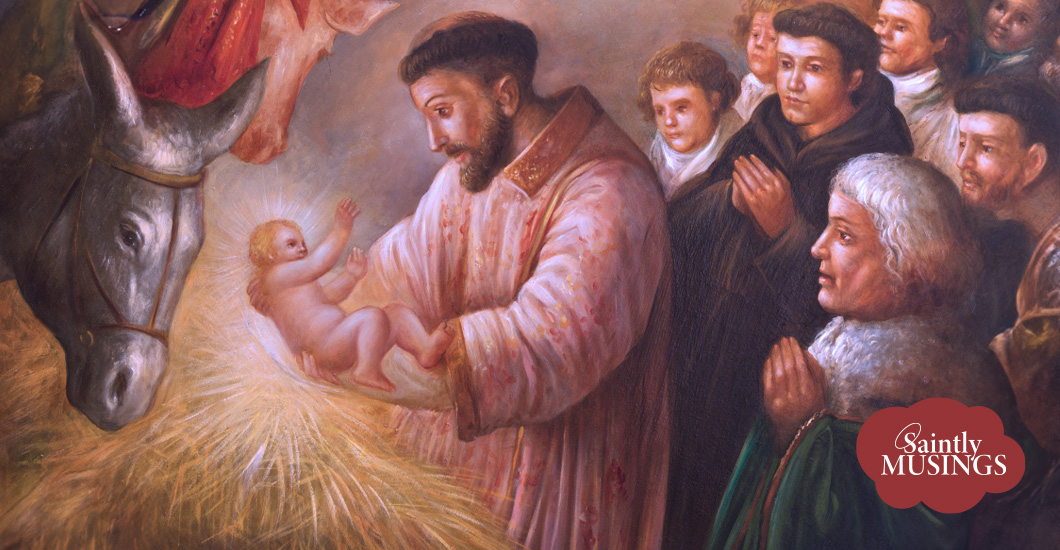Trending Articles
The Four Loves
In the last chapter of the last Gospel (John 21), there is something strange going on. It is the scene where Jesus asks Peter three times, “Do you love me?” to repair the three times he betrayed Him. What is lesser known is that they are using two different words for “love.” Jesus asks Peter if he has agape for Him, and Peter says he has philia for Christ. Agape is that kind of selfless love shown on the cross. It is the love of bridegroom for bride, pronounced in Robin Hood’s melodic confession, “Marian, I love you more than life itself.” But Peter responds that he has philia, friendship, for Jesus. We know it from Philadelphia, the City of Brotherly Love.
Imagine it is Valentine’s Day and you have booked a reservation with your significant other at a particularly classy place, say Applebee’s. Beneath that green-glass overhanging lamp, your beloved takes a sip of Carlo Rossi then, looking at you doe-eyed, says softly, “I love you.” If you reply, “I am your friend,” there are some major relationship issues that you might need to discuss. “Yet the apostles did just this. Before they received the Holy Spirit, they did not know how to love Christ as He loved them. They were not ready to lay down their lives.
The Greeks had two further words for love: “eros” is the passionate desire of lovers, and “storge” is a general affection for family members or acquaintances. Often we love other people with more than one kind of love. Marriage, for instance, involves all three: storge for the quirks and personality of the spouse, philia as couples naturally become best friends and eros, which desires both physical and personal (spiritual) intimacy. We also need agape to keep sacrificing for one another, because sacrifice means death of self to raise the other. We need it to forgive one another, when we are powerless to do so ourselves.
Only God’s grace, His agape, can give us this ability to keep loving our neighbor. He gives us His own love with which to love others with. That might sound abstract, but it is possible for every Christian. We were given agape (charity, as we call it in theological English) at our baptism, along with its sister virtues of faith and hope. This is a totally new kind of love, where we love God for His own sake. When we have received faith and know the Lord in our minds, our hearts should instantly love Him—and not only Him, but we now can love others with this new love for God, and we can love them as His own sons and daughters, just as we have discovered ourselves to be.
We grow in agape every time we pray or receive the sacraments, and it has real effects in our lives: It gives that certain richness to our loves, making friendship into Christian friendship or marriage into Christian marriage, a sacrament and a source of grace for spouses. All other loves can grow tired, or they can fight to take over and become idols, especially eros. At times, other loves like eros and philia compete with one another in a relationship. But agape is from God, and it is totally different. It does not take away from other loves, but only adds to them and makes them more truly themselves.
In the above Gospel scene, Jesus changes. The third time He asks, “Simon, do you have philia for me?” Peter is grieved by this, because God gently condescends to his weak, grasping love. It is a graced grieving and he burns in his heart when God stoops to his level. “Lord, you know everything; you know that I have philia for you.” It is as if Jesus says, “It’s ok, Peter! Whatever you have now, I’ll take it. Soon it will become greater.” A few weeks before, Peter was overzealous and even promised that he would die with Jesus; since then he has been humbled. When he hears from the boat that it is Christ on the shore, love moves him to leap overboard and swim: “Now when Simon Peter heard that it was the Lord, he girt his fisher’s coat unto him and did cast himself into the sea” (John 21:7 KJV). We cannot love God on our own, and so He helps us, moving us to respond by His own movement of love. “In this is love, not that we loved God but that He loved us and sent his Son to be the expiation for our sins. Beloved, if God so loved us, we also ought to love one another” (1 John 4:10).
The good news is that wherever we are in our vocation or “relationship status,” we do not have to wait to grow in loving God. “If today you hear his voice, harden not your heart” (Hebrews 3:15). Today, ask to receive God’s love! Loving Him gives new life to the relationships we already have, and it prepares us for the ones awaiting us in the future. It will strengthen us in trials and always add more joy to our joys.
Brother Timothy Danaher, O.P entered the Order of Preachers in 2011. He is a graduate of Franciscan University of Steubenville, where he studied Theology and American Literature. Before Dominican life he worked as a life guard in San Diego, California, and as a youth minister in Denver, Colorado. Article originally appeared in Dominicana (www.domincanajournal.org). Reprinted with permission.
Latest Articles
Want to be in the loop?
Get the latest updates from Tidings!






